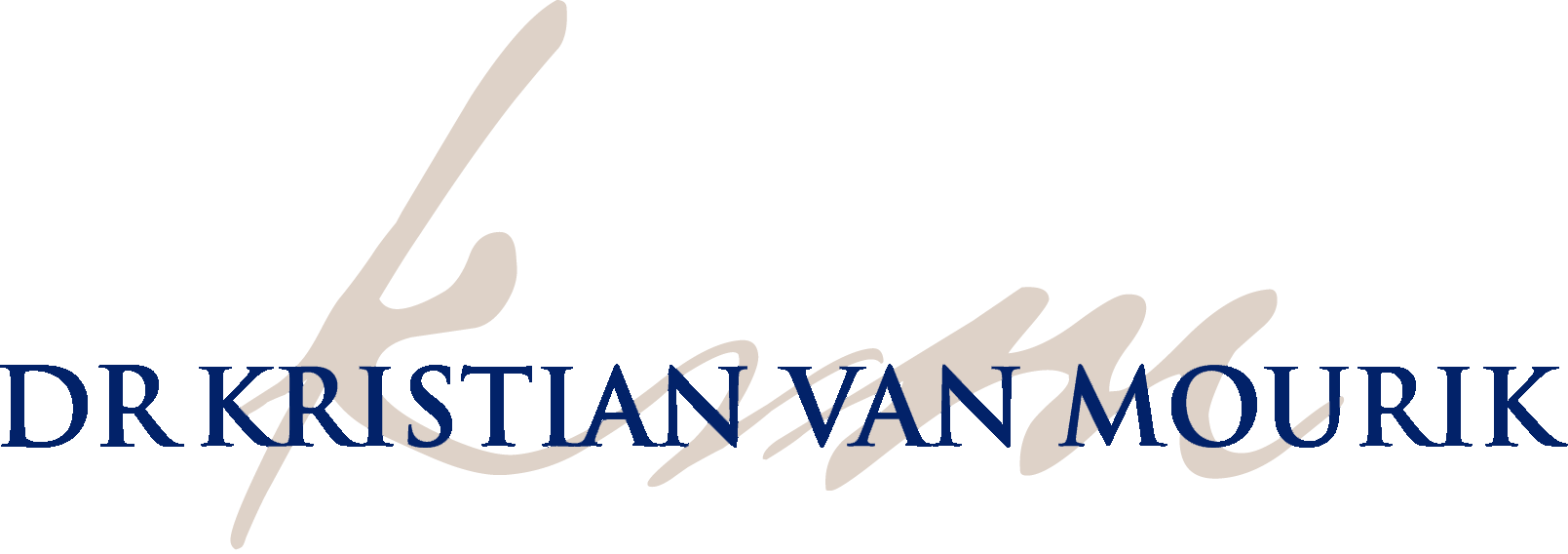Jaw Expansion Surgery Specialist Sydney
Jaw Expansion Surgery (SAME) Sydney
Jaw expansion surgery, also called Surgically Assisted Maxillary Expansion (SAME), is usually recommended when orthodontics alone cannot achieve sufficient expansion and is carefully planned in conjunction with your orthodontist.
With more than 15 years of specialist practice, Dr Kristian van Mourik provides Jaw Expansion at clinics in Bondi Junction and Lindfield.
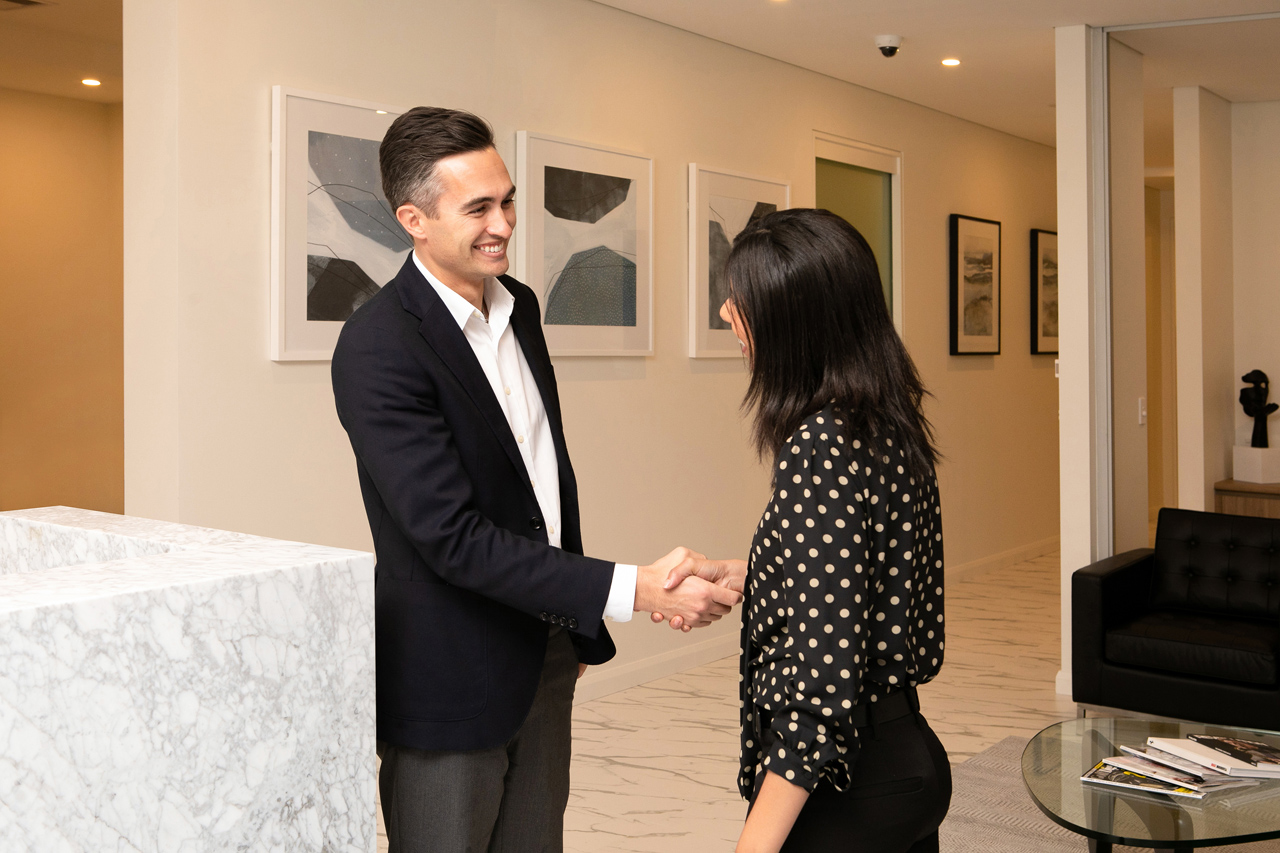

Our practice provides a wide scope of Oral and Maxillofacial Surgery in Sydney, built on more than 15 years of specialist experience. With two established clinics and a patient-first approach, we focus on careful planning, clear communication, and safe surgical care. Learn more about our team and history in the link below
What is Jaw Expansion Surgery (SAME)
Jaw expansion surgery (also called SAME or Surgically Assisted Maxillary Expansion) is used to widen a narrow upper jaw and create more space for your teeth.
It’s often recommended for moderate to sever cases, when orthodontic treatment alone can’t achieve enough expansion — especially in adolescents and adults whose jawbones have already fused.
This procedure helps improve bite alignment, breathing, and facial balance, and is planned in conjunction with your orthodontist.
Why Get Jaw Expansion Surgery?
If your upper jaw is too narrow, jaw expansion surgery can be the key to a healthier bite and improved smile. Reason why it might be suitable.
Create more space for your teeth
A narrow upper jaw can lead to crowded, overlapping, or impacted teeth. A palatal expander helps widen the jaw so your adult teeth have room to align properly.
Fix bite issues (like crossbites)
When the upper jaw is too small, your upper and lower teeth may not fit together correctly. Widening the upper jaw helps align the bite so your teeth meet the way they should.
Improve airway and breathing
A narrow palate can restrict the space in your nasal and airway passages. Expanding the palate may help ease breathing, reduce snoring, or improve mild sleep-disordered breathing.
Prevent more complicated treatments later
Starting early with an expander can reduce the need for extractions, jaw surgery or longer orthodontic work in the future.
Facial balance
Expanding the jaw can enhance symmetry and overall facial harmony.
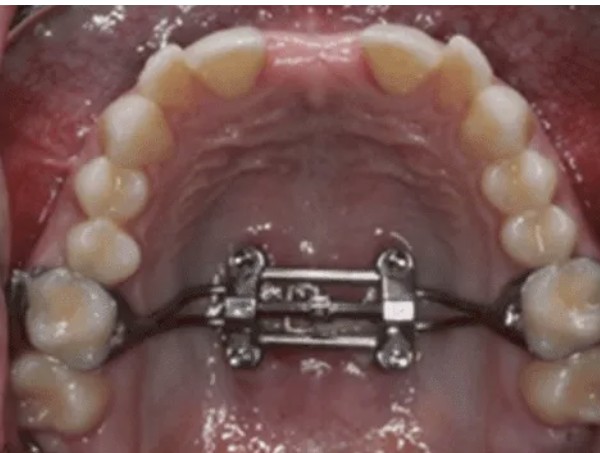
How is Jaw Expansion Surgery Performed?
Dr van Mourik performs your upper jaw expansion surgery in an accredited private hospital under general anaesthetic given by a specialist anaesthetist — so you’ll be fully asleep and comfortable during the procedure.
During the Surgery
- Surgery is done mostly inside the mouth, so there are no visible scars.
- In rare cases, a small external cut may be needed, placed in a natural skin crease to stay discreet.
- Small cuts are made in the upper jawbone, and an expansion appliance is placed on the roof of your mouth.
After the Surgery
- About three days after surgery, the expansion process begins.
- The appliance is adjusted gradually to widen the upper jaw over several weeks.
- Once expansion is complete, the appliance remains for a few months while the bone heals and strengthens.
- After healing, orthodontic treatment begins to align the teeth and fine-tune the bite.
Recovery After Jaw Expansion Surgery
Hopital Stay
You’ll most likely spend one night in hospital.
Pain Relief
- Immediately after surgery you’ll be prescribed intravenous pain relief by your surgeon.
- After about 24 hours, you should be comfortable using regular pain tablets such as Nurofen® or Panadeine®.
Time Off Work/School
You should plan for 2 days to 1 weeks off to rest and recover.
Stitches
Most stitches used are dissolving. They typically dissolve over 1 to 2 weeks.
Diet
- For the first week, you’ll be on a soft-food diet (with no straws) to protect your healing jaw.
- After the initial period you’ll gradually move back to normal foods as advised by your surgeon.
Oral Hygiene & Follow-Up Care
- While the expansion device is in place, you’ll need to brush carefully with a soft toothbrush, and rinse your mouth with warm salt water
- You’ll visit Dr van Mourik and your orthodontist for periodic reviews to check your healing and ensure the jaw expansion is progressing correctly.
Your surgeon will provide you with detailed post-operative instructions tailored to your case. Following these instructions carefully will support a smoother recovery and help avoid complications.
A Personalised Approach
Jaw expansion surgery is never “one-size-fits-all.” Each treatment is carefully planned to suit your individual facial structure, bite, and goals. Beyond improving bite function and creating space for proper tooth alignment, it also enhances overall facial balance by harmonising the proportions of the teeth. The result is not only improved oral health but also a more natural, symmetrical appearance—both from the front and side views.
Jaw Expansion Sydney Costs
Medicare will reimburse you for part of your initial consultation.
We will provide you with a quote after the procedure for you to send to your private health care fund to find out what your rebate for surgery is.
We’ll give you contact details for the anaesthetist so you can obtain their fee schedule. Medicare and private health insurance will cover part of the anaesthetist’s costs.
Why Seeing an Oral and Maxillofacial Surgeon Matters
Jaw expansion surgery is a complex procedure that requires specialist training.
Oral and Maxillofacial Surgeons have the highest level of training and skills in jaw surgery, having qualified as a surgeon, a doctor and a dentist.
They regularly perform jaw surgery and offer the highest standard of surgical care. An Oral and Maxillofacial surgeon’s approach ensures:
- Surgery performed to the highest technical standard
- The best chance of a smooth recovery and long-term success
- Treatment guided by the most current medical and dental knowledge
- A lower risk of complications
- Specialist medical expertise to manage complications, should they arise
Trust an Oral and Maxillofacial Surgeon for the best outcomes for your jaw expansion surgery.

Meet Dr Kristian van Mourik
Dr Kristian van Mourik is a fully qualified Oral & Maxillofacial Surgeon with more than 15 years of specialist practice in Sydney. He holds dual degrees in medicine and dentistry, supported by extensive surgical training, making him one of the few surgeons in Australia with this level of expertise.
Academic background includes:
- Bachelor of Biomedicine – Monash University
- Bachelor of Dentistry with Honours – University of Sydney
- Bachelor of Medicine / Bachelor of Surgery – University of Sydney
His practice covers the full scope of oral and maxillofacial surgery, including TMJ disorders, corrective jaw surgery, wisdom tooth removal, dental implants, trauma surgery, and oral pathology. Dr van Mourik is registered with both the Medical Board of Australia and the Dental Board of Australia as a specialist Oral & Maxillofacial Surgeon.
Dr Kristian Van Mourik Associations & Accreditations







Areas We Service for Jaw Expansion
Jaw expansion surgery available across Sydney’s Eastern Suburbs and North Shore.
- Bondi
- Bronte
- Clovelly
- Coogee
- Randwick
- Paddington
- Woollahra
- Double Bay
- Bellevue Hill
- Tamarama
- Waverley
- Surrounding Eastern Suburbs
- Roseville
- Chatswood
- Killara
- Gordon
- Pymble
- Turramurra
- St Ives
- Wahroonga
- Hornsby
- Willoughby
- Castle Cove
- Other North Shore suburbs
Jaw Expansion Surgery FAQs
At what age should a child get a palate expander?
People of any age can have a palate expander. But in children, jawbones are still forming and developing. For this reason, orthodontists often recommend that children start wearing a palate expander when they’re 7 or 8 years old. When your orthodontist starts moving bones this early on, it can reduce the likelihood that your child will need more invasive procedures later in life. In most cases, it takes two months to three months to achieve desired results.
Because teens’ and adults’ bones are already strong and developed, it usually takes longer to achieve desired results with a palate expander — possibly up to one year.
Keep in mind, though, that everyone’s situation is unique and not everyone needs a palate expander as part of their treatment. Talk to your healthcare provider about what’s right for you.
How will I know if my child or I need a palate expander?
If you have a narrow palate that’s causing crowding or bite issues, your dentist can talk with you about your treatment options. They may refer you to an orthodontist for a consultation.
What are the risks or complications of a palate expander?
Like any new dental device, palate expander can cause minor discomfort for the first few days. Some people have slight discomfort after turning the key, too. To reduce tenderness, take over-the-counter pain relievers, such as acetaminophen, ibuprofen or naproxen.
Palate expanders shouldn’t cause severe pain or discomfort. If you develop any concerning side effects, call your dentist or orthodontist right away.
How painful is a palate expander?
Like any new dental device, palate expander can cause minor discomfort for the first few days. Some people have slight discomfort after turning the key, too. To reduce tenderness, take over-the-counter pain relievers, such as acetaminophen, ibuprofen or naproxen.
Palate expanders shouldn’t cause severe pain or discomfort. If you develop any concerning side effects, call your dentist or orthodontist right away.
How long do palate expanders stay in?
It depends on several factors, including age, the severity of your condition and compliance. For example, an 8-year-old child may only need a month or two to widen their palate. An adult, whose bones have already fully developed, might need several months to a year or longer.
Even after your palate expands to the appropriate width, your provider will likely leave the device in place for an additional four months to six months. This gives your jawbone time to fuse together and become strong.
Is a palate expander really necessary?
If you have a narrow palate due to skeletal issues, then, yes, a palate expander is necessary to correct your bite. Braces can move teeth, but they can’t move your jawbone. Your dentist or orthodontist can let you know if a palate expander should be part of your treatment plan.
Can a palate expander cause facial changes?
No. A palate expander widens your jaw, but it doesn’t change the actual appearance of your face.
Some studies show that a palatal expander can have positive effects on your nose. Because the nasal cavity widens, it causes a reduction in nasal airflow resistance.
Our Sydney Clinics
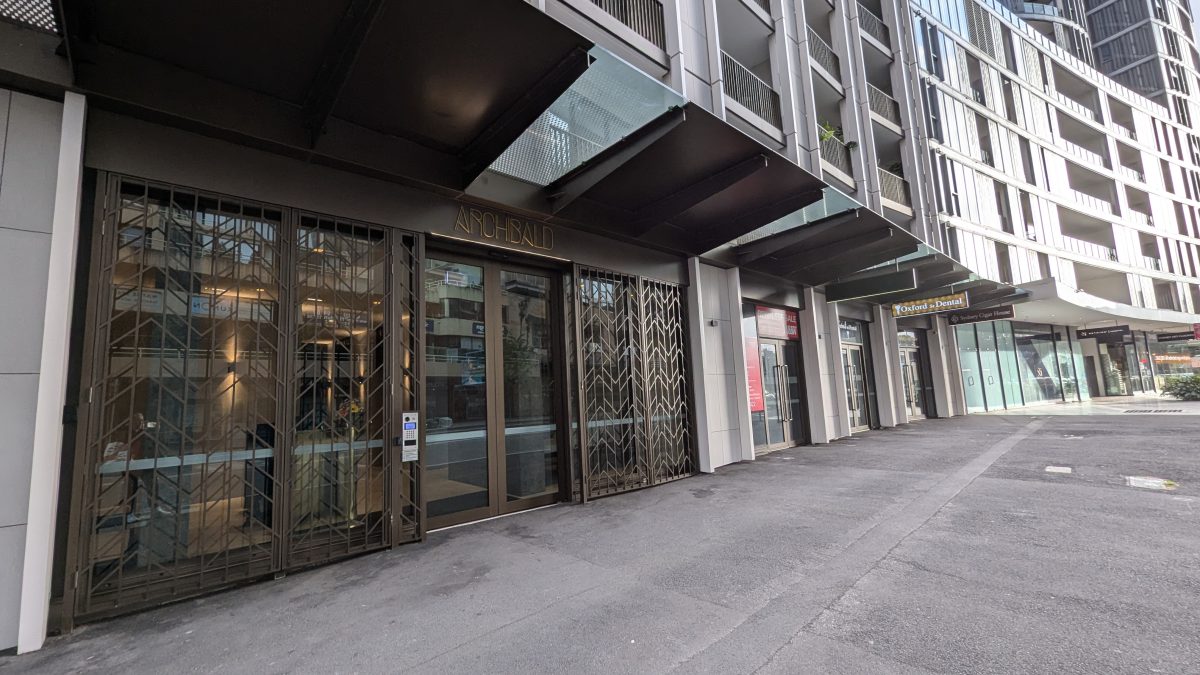
Bondi Junction
Located in the heart of the Eastern Suburbs, our Bondi Junction clinic is easily accessible by train, bus, and nearby parking.
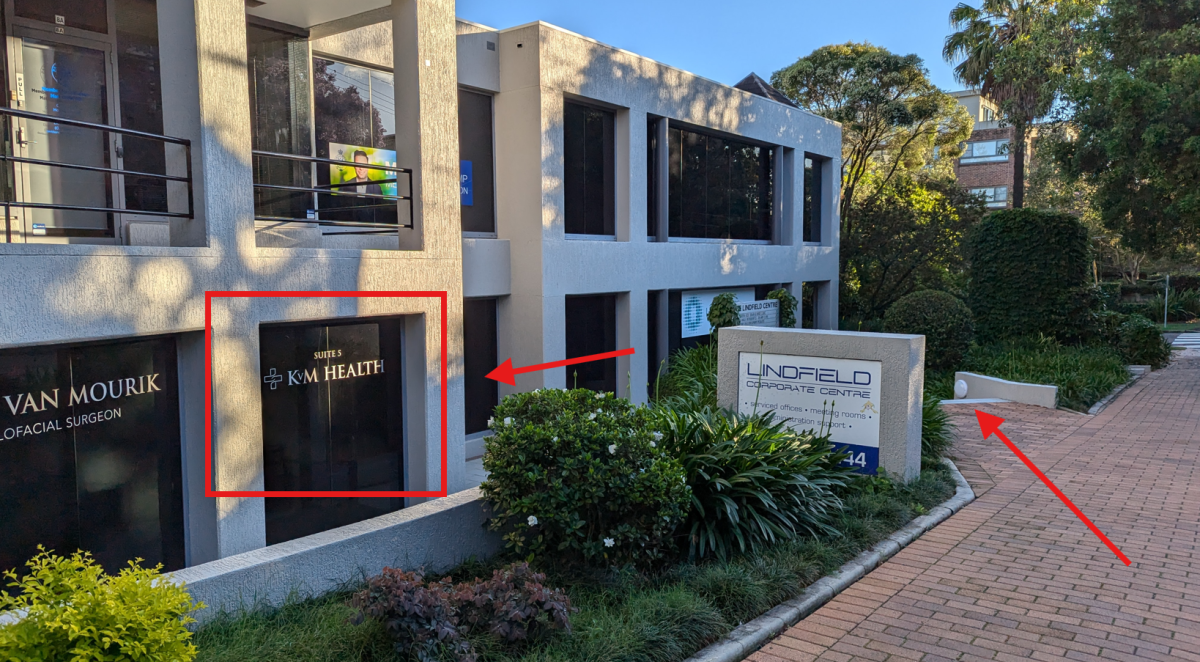
Lindfield
Conveniently positioned on the North Shore, our Lindfield clinic is close to public transport and offers parking options nearby.
